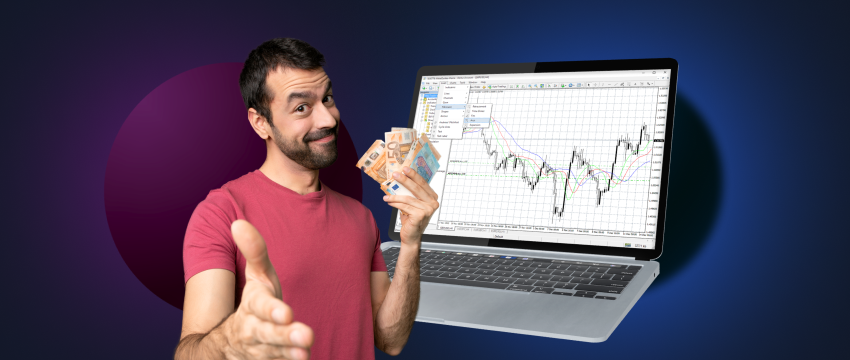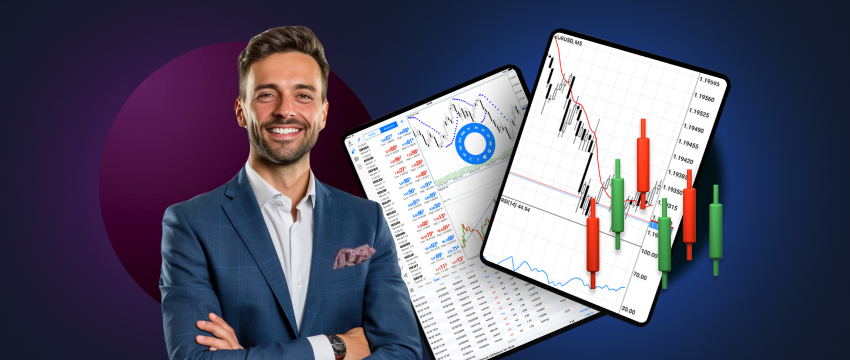Trading in the financial markets can be exciting as well as challenging. Whether you’re a novice or an experienced trader, a combination of skill, knowledge, and expertise is needed to become a successful trader.
In this article, we will explore key strategies to help you become more successful in trading.

Education
Knowledge is the foundation of successful investing. Take the time to educate yourself about the financial markets, different investing instruments, and various strategies. Understand the factors that influence market movements, economic indicators, and the impact of global events. Continuously update your knowledge to stay abreast of market trends and changes. Additionally, you need to look for reliable educational resources to learn everything you need to know about online trading. These include videos, podcasts, courses, blogs, webinars, online courses, etc.
Although studying takes time and effort, it will help your investing. And there’s always more to learn as a trader, regardless of experience level. So, keep reading the news, analyzing market trends, and never underestimate the importance of grasping the fundamental principles.
Create a Trading Plan
Creating a plan is an essential element of successful trading. In your plan, you should outline your trading goals, risk tolerance, and strategies. Determine how much capital you’re willing to risk on each investment and set stop-loss orders to manage risk effectively. An investment plan creates a framework for ongoing monitoring of your trading performance and acts as a roadmap to guide you in the right direction.
Within your plan, outline your entry and exit strategies and include several criteria such as the markets you will invest in, risk tolerance, position size, preferred market environments, and additional relevant factors. Always bear in mind the timeless advice: “Plan your trade and trade your plan.”

การบริหารความเสี่ยง
Managing risk is a top priority for successful investment. This includes:
Identifying and estimating risk: It is crucial to identify potential risks and estimate potential losses in a trade. This process helps traders to make informed decisions that align with their goals and risk tolerance.
Selecting the right tools: This includes using stop-loss orders to limit losses effectively. Take-profit orders can be used to lock in profits and exit a trade before it moves in the opposite direction. Alternatively, traders can use trailing stops which set the stop price at a fixed amount below the market price with an attached “trailing” amount.
Exercising patience and constraint: Patience and restraint play important roles in making smart trading decisions, enabling traders to wait for the right time and price to buy and sell.
Control Your Emotions
Controlling emotions, especially fear and greed, is essential in trading. Emotional decision-making can result in impulsive actions and substantial losses. Make sure you develop a disciplined mindset by sticking to your plan.
To reduce stress, identify its cause and either eliminate it or reduce its influence on you. While this is challenging, especially after experiencing losses, this can prove to be the difference between successful and unsuccessful trading.
Keep a Trading Journal
Keep a record of your trades by recording everything in a journal. Use the journal to evaluate and gain a better understanding of the reasons behind the performance of your investments. Reflect on the trading decisions you made, and the outcome you achieved, and consider the alternative action you could have taken to get better results.
The insights you gain from this will inform you about the necessary changes you need to make to your trading strategy. Dedicating a few hours every month to review past trades will be time well spent and could deliver positive returns for future trades.
Choose a Reliable Broker
Selecting the right broker is crucial. It’s important to ensure that prospective brokers meet the following criteria:
User-friendly platform: Choose a forex broker that provides a user-friendly trading platform equipped with customizable options, automated market analysis, and sentiment tools. Additionally, advanced charting features and trade automation capabilities contribute to a seamless investing experience.
Access to educational materials: Look for brokers that provide access to a diverse range of educational materials and other valuable resources.
Real-time updates and insights: A reputable broker should deliver real-time updates on financial markets, global events, and relevant news and insights.
Exceptional customer support: Choosing a broker with excellent customer service is crucial. A responsive and knowledgeable support team is essential for addressing issues quickly, fixing problems, and offering valuable help.

Start Trading Small
It is advisable to start investing with a small sum. As your knowledge and expertise increase, gradually increase the amount you wish to put on your trades. Every investment offers a new opportunity to learn, so be patient and take your time. Learn as much as you can about the online trading platform you will use to execute your investments and be aware of the potential risks you may experience due to market volatilities and price fluctuations. Confidence is key, so only trade with funds you can afford to lose.
Practice Trading on a Demo Account
Most brokers offer demo accounts that allow you to practice trading without risking real money. With a demo account, you can place trades in real-time and see potential outcomes. Once you’ve achieved consistent profitability on the demo account, you can open a live account.
Trade with T4Trade
T4Trade is a reliable broker that will help its traders become successful in investing. They offer top-notch educational resources that provide beginners with all the skills and knowledge they need to start investing.
T4Trade also provides a secure trading environment, with access to 300+ instruments across 6 asset classes, including shares, indices, forex, futures, metals, and commodities. Traders can choose from a variety of accounts, depending on their goals and investing needs. Additionally, traders can use flexible leverage, and enjoy competitive spreads as well as exceptional 24/5 multilingual customer support via email or Live Chat.
Conclusion
The path to potentially successful trading is a journey that requires dedication, knowledge, and discipline. Remember that losses are a part of the investing journey, and success usually comes after overcoming challenges and refining your skills. Develop your unique trading technique, adapt to market conditions, and stay committed to continuous learning. With the right mindset and strategy, you could become more successful in investing.
Disclaimer: This material is for general informational and educational purposes only and should not be considered investment advice or an investment recommendation. T4Trade is not responsible for any data provided by third parties referenced or hyperlinked in this communication.




